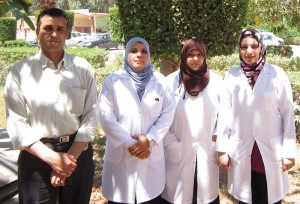LIBYA:
Making Work for Democracy – Libyans Focus on FutureFebruary 20, 2013
Libyans lead their young democracy.
Young democracies embody hope, change, and opportunity, and Libya is no exception. After four decades under Muammar Gaddafi, the country held successful Parliamentary elections in July and will soon initiate a process to draft a new Constitution. Nonetheless, threats remain to the country’s democratic transition. As in other countries, unemployment has emerged as a destabilizing force in Libya. The high unemployment rate and limited economic outlook has given rise to fears among Libyans about what lies ahead.
With this challenge in mind, the Libyan Center for the Development of Human and Institutional Resources was established to provide training and employment opportunities to unemployed youth. Aware that Libyan healthcare has traditionally relied on foreign doctors and nurses, the organization determined that it could provide new jobs for Libyans, as well as meet an urgent need to care for veterans of the revolution by building candidates’ technical capacity in the area of nursing.
With the support of the State Department’s Middle East Partnership Initiative and its Community Driven Grants Program, implemented by Creative, the Center established a training program for unemployed women who, upon course completion, would be certified as health assistants. A total of 85 young women enrolled and participated in the program.
 |
Technical training opens new employment opportunities. |
The results were exciting. The first training course finished just as the Libyan Ministry of Health initiated a new effort to contract 500 nurses from outside the country to meet the local need. The Center advocated for the Ministry to consider the 85 newly-certified health assistants alongside foreign candidates. They were given the opportunity, and 73 of the 85 nurses were offered assignments at three major hospitals in Benghazi. Not only has the initiative tangibly resulted into new jobs and additional sources of income for families in need, it has encouraged other groups to follow their example and provide additional vocational training opportunities for unemployed Libyans.
— Andrew Albertson, Communities in Transition Division

